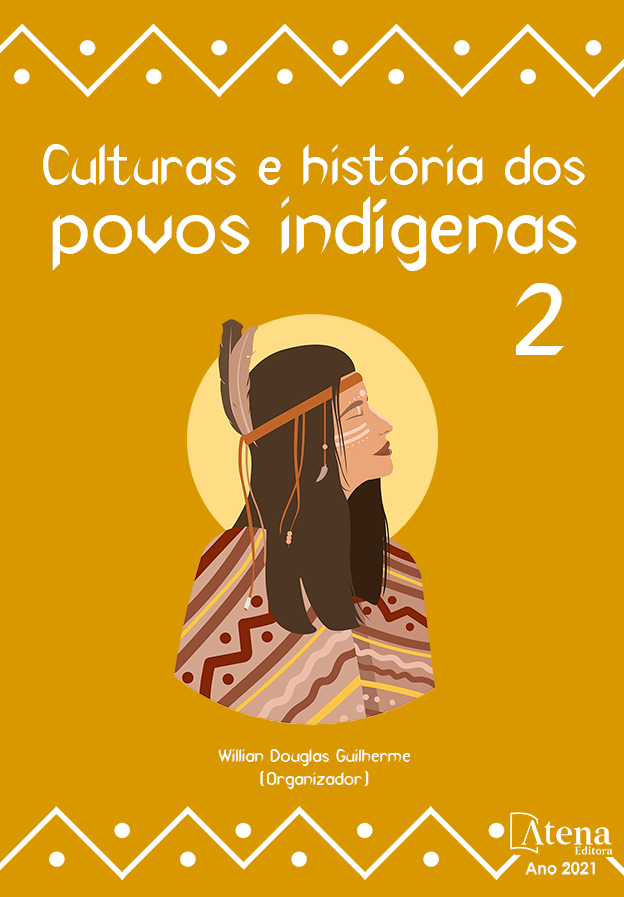
A (RE)DENÇÃO DA HISTORIOGRAFIA E A PRÁTICA ESCOLAR: TROCAS ENTRE SABERES, MOBILIZAÇÕES E DIREITOS ÉTNICOS
A educação intercultural enquanto via de ação política é urgente no sentido de mudança da prática de ensino da história indígena tende a re-descobrir, tirar da invisibilidade, realocar na história as várias etnias e maneiras de ser índio no Brasil, e o apagamento desses povos no nordeste brasileiro. Esse clamor iniciaria por uma revisão, onde o resgatar desses povos esquecidos da história venha redimir a própria historiografia do papel que teve em negligencia-los. Este trabalho se propôs a realizar uma etnografia do ensino da temática indígena nas escolas do município de Capoeiras/PE, a partir da percepção de docentes e discentes. Para partir daí, intervir através da Pesquisa Ação em atividades no viés intercultural, com isso realocar os índios no que diz respeito ao ensino da história. Pela importância do estudo sobre os povos originários, a presente pesquisa visa contribuir com o diálogo entre antropologia e educação, para que de fato possamos pensar o ensino como ferramenta de mobilização no que diz respeito aos direitos étnicos. E que a sala de aula seja um ambiente mediador de valorização e reconhecimento dos direitos das etnias existentes, principalmente em contexto local e sua importância na formação cultural da sociedade. Com isso, pensar a educação como mediadora de atores e mudanças sociais, um espaço onde o reconhecimento e as mobilizações das comunidades tradicionais possam ganhar força e reconhecimento. O diálogo respaldada na reflexão da Lei 11.645/2008, tendo em vista que a história indígena tratada no âmbito escolar ainda está carregada de preconceitos e estereótipos, tal justificativa se faz necessária, tamanha a carência de esclarecimentos diante do não reconhecimento do índio enquanto sujeito de direitos e do tempo presente.
A (RE)DENÇÃO DA HISTORIOGRAFIA E A PRÁTICA ESCOLAR: TROCAS ENTRE SABERES, MOBILIZAÇÕES E DIREITOS ÉTNICOS
-
DOI: https://doi.org/10.22533/at.ed.3512123071
-
Palavras-chave: Mobilização; Indígenas; Educação.
-
Keywords: THE (RE) DENTION OF HISTORIOGRAPHY AND SCHOOL PRACTICE: EXCHANGES BETWEEN KNOWLEDGE, MOBILIZATIONS AND ETHNIC RIGHTS
-
Abstract:
Intercultural education as a way of political action is urgent in the sense of changing the practice of teaching indigenous history tends to rediscover, remove from invisibility, relocate in history the various ethnicities and ways of being indigenous in Brazil, and the erasure of these peoples in northeastern Brazil. This clamor would begin with a revision, where the rescue of these forgotten peoples in history will redeem the very historiography of the role that it played in neglecting them. This work proposed to carry out an ethnography of the teaching of indigenous themes in schools in the municipality of Capoeiras / PE, based on the perception of teachers and students. To start from there, intervene through Action Research in activities with an intercultural bias, thereby reallocating the Indians with regard to the teaching of history. Due to the importance of studying native peoples, this research aims to contribute to the dialogue between anthropology and education, so that in fact we can think of teaching as a mobilization tool with regard to ethnic rights. And that the classroom is a mediating environment for valuing and recognizing the rights of existing ethnic groups, especially in the local context and its importance in the cultural formation of society. Thus, thinking of education as a mediator of actors and social changes, a space where the recognition and mobilizations of traditional communities can gain strength and recognition. The dialogue supported by the reflection of Law 11.645 / 2008, considering that the indigenous history treated in the school environment is still loaded with prejudices and stereotypes, such a justification is necessary, due to the lack of clarifications in the face of the non-recognition of the Indian as a subject of rights and the present tense.
-
Número de páginas: 20
- Tatiane Lima de Almeida
- Alexandre Gomes Teixeira Vieira
- Mikaela Moreno Vasconcelos Araujo


